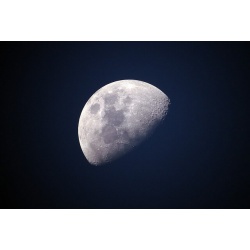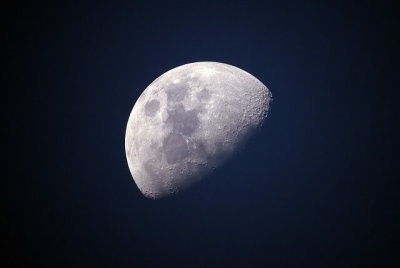
decorahnews.com's Ben Gardner comments on the 50th anniversary of the moon landing--Part 2
Yesterday I gave a brief account of the moon landing. Today, I'll investigate why it became a national priority to land on the moon.
The story of the space race between the Soviet Union and the U.S. is complicated; but its beginning, the single event that spurred an epic technological and military race, was clear and decisive.
It began with the launch of Sputnik I in 1957. It seemed simple enough: the launch of a bulky satellite into space. But this technological achievement struck fear into the hearts of U.S. politicians, government officials, and the media. Why did this innocuous object scare people?
It made people scared because at that moment, 1957, the U.S. was in a dogged pursuit of two interconnected goals: 1) fight the perceived spread of Communism and bypass the Soviets in military technology. Sputnik, for many politicians and journalists, was seen as a dangerous advance in the Soviet Union's gumption and military prowess. If the Soviets had the technological ability to launch Sputnik, the reasoning went they'd be able to use space as a launching ground to hurl bombs down on the U.S. So this unwieldy satellite, engineered and employed for scientific purposes, overnight became an issue of national security.
During the next couple years, the U.S. and Soviet Union would continue to compete in advancements in low orbital flight testing. The Soviets were the first to put an animal in space and the first to put a man in orbit. And every advance made by the U.S. was gracefully bested by the Soviets; for example, soon after the U.S. sent Gus Grissom and Al Shepard on two fifteen-minute suborbit flights, the Soviets sent a man into orbit for over 24 hours.
The U.S. simply couldn't catch a break. And this national panic, this anxiety over the race to survive, grew as the sixties approached and continued under the Kennedy administration. It was President Kennedy who, early in his term, urged Congress to fund a program to land an astronaut on the moon by the end of the decade. And the country backed him, as did the politicians and the media.
Panicked, overworked, and enthusiastic columnists for major media outlets continued describing the space race as a "race for survival." In Washington, D.C., politicians began spinning the space race as a battle to dominate the mysterious frontier of space. Whoever controlled the high-ground of space would dominate the world-stage. And soon the men agreeing to go up in these dangerous rockets were becoming heroes; their story was quickly becoming the American Story, and media outlets like "Time" and "Life" were adept at delivering this slant of Americana onto a nation thirsty for an epic story. "One small step for man; one giant leap for mankind." That's a prophetic statement chock-full of mythic symbols.
So much of this ends up being about fear. Fear that the rockets being engineered so superbly by the Soviets would be used as bombs to be dropped on innocent U.S. civilians. And that's what resonates with me (particularly at this moment in history) about the space race and the moon landing: the human emotion of fear influencing world-historical events.
Stay tuned tomorrow for part three, where we'll share personal recollections of the moon landing from local residents.
Site designed and maintained by Iroc Web Design Services©.
Your Small Business Web Design Solutions.™


